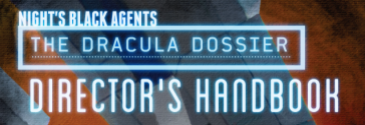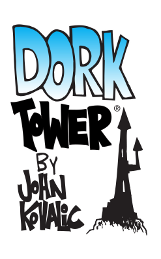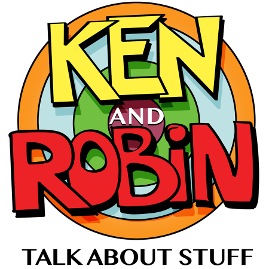Episode 191: In Case I Trip Over a Sand Dune
May 20th, 2016 | Robin
Patreon supporter Tim Brandis kicks us off with an Ask Ken and Robin question about which of our core design beliefs might have evolved over time.
In the Tradecraft Hut we reach way back to that most classic of espionage scandals, the Dreyfus Affair.
The Cinema Hut finds us in Stetsons and spurs for an introductory course on the Western.
Finally, backer Chris McNeil requests that Ken’s Time Machine be put to use making the medieval peasant revolt of Ken’s choice successful.
It’s yo ho ho and a pocketful of doubloons as Atlas Games surveys the seven seas from the crow’s nest that is our coveted anchor sponsor slot. Parrot on its shoulder, it orders up another special deal for Ken and Robin listeners, this time in the form of their innovative game of piratical nautical warfare, Pieces of Eight. Ken fans who did not partake of the Kickstarter can now sink their fangs into the general release of the Dracula Dossier from Pelgrane Press, consisting of the Director’s Handbook and Dracula Unredacted.
 You say that’s still not enough Ken for you? Very well, my friend. His brilliant pieces on parasitic gaming, alternate Newtons, Dacian werewolves and more now lurk among the sparkling bounty of The Best of FENIX Volumes 1-3, from returning sponsors Askfageln. Yes, it’s Sweden’s favorite RPG magazine, now beautifully collected. Warning: not in Swedish.
You say that’s still not enough Ken for you? Very well, my friend. His brilliant pieces on parasitic gaming, alternate Newtons, Dacian werewolves and more now lurk among the sparkling bounty of The Best of FENIX Volumes 1-3, from returning sponsors Askfageln. Yes, it’s Sweden’s favorite RPG magazine, now beautifully collected. Warning: not in Swedish. 
Attention, operatives of Delta Green, the ultra-covert agency charged with battling the contemporary forces of the Cthulhu Mythos! Now everything you need to know to play Delta Green: The Roleplaying Game, perhaps extending your valiantly short field life, can be found in the Delta Green Agent’s Handbook.
Podcast: Play in new window | Download
















Stagecoach rules.
My biggest problem with High Noon is the interminable repetition of “High Noon (Do Not Forsake Me)” throughout.
I think Lonesome Dove deserves to be mentioned even if it’s a TV mini-series rather than a theatrical feature film. I would describe it as a revisionist Western due to the way it constantly subverts the expectations of the genre. (For example, you expect it to end with a showdown between our heroes and the antagonist, and, well… that doesn’t happen in the slightest.)
It could be because of my age, but I do think Tombstone deserves a spot on this list as well. I’m not sure how historically accurate it is, but it’s such a thoroughly entertaining movie that it doesn’t matter in the slightest.
Speaking of thoroughly entertaining, I think an honorable mention should go to Silverado. Sure, it doesn’t do anything new with the genre, but it’s so finely constructed that I think it stands as an excellent example of a traditional Western.
Another honorable mention to the Coen Bros.’ True Grit. Yes, I enjoy it more than the original.
Interestingly, Destry Rides Again specifically violates Ken’s theory of Westerns: Destry defeats the “barbarians” but remains a civilized man and has a place within the civilization he defends.
Is that perhaps a difference between comic and tragic Westerns? Comedies by definition have a happy ending so the “necessary barbarian” can join civilization?
A minor point, but Alphonse Bertillon was not the father of fingerprinting. He was the creator of a rival system of identification through precise measurement of the body. Henry Faulds is often regarded as the father of fingerprints, with Francis Galton (Darwin’s cousin) as the creator of the classification system used in the West. The two systems were rivals until the West brothers incident in 1903 — a too-good-t0-be-true story that suggests the intervention of a certain time traveler.
“Oh, you lovely children who have never made a GURPS character, I envy you.”
Amen!
I played quite a bit of GURPS 3E back in the day, but my various gaming groups moved on to other RPGs just as 4E was coming out. I would love to try out 4E, but am afraid that my own tastes have changed too much in the intervening years for me to groove to it as much I did on 3E.
As I get older (I’ve been gaming 30+ years), I find myself generally preferring simpler systems, such as BESM, Cinematic Unisystem, Fate, and D&D 5E. The one glaring exception is Pathfinder, which my group moved to only a couple years ago. (We never liked 4E much, so never stopped playing 3.5 until we finally tried PF–mostly at my request.) And as much as I enjoy PF, it does have a tendency to get bogged down in the sheer volume of crunchy bits.
Since when did GURPS become a metric for “difficult” character creation? For Pete’s sake, it’s a game with eight significant character stats and a moderately comprehensive skills list! It asks for trivial amounts of addition and subtraction.
Have people never had to design a Champions character? Or more importantly, to stop a gamist player from abusing and mutilating the system while designing a Champions character? Am I actually the only person round here who remembers the great Chivalry and Sorcery first edition challenge (“Can you create a Chivalry and Sorcery character?”) Are gamers actually frightened of addition and subtraction?
Now, deciding whether a proposed FATE character aspect is playable and adequately defined – that’s difficult…
TLDL
Name (year) – Director
Stagecoach (1939) – John Ford
The Searchers – John Ford
The Man Who Shot Liberty Valance – John Ford
High Noon (1952) – Fred Zinneman
Rio Bravo (1959) – Howard Hawks
Shane (1953) – George Stevens
Unforgiven (1992) – Clint Eastwood
The Outlaw Josey Wales – Clint Eastwood
The Naked Spur (1953) – Anthony Mann
The Wild Bunch (1969) – Sam Peckinpah
Once Upon a Time in the West – Sergio Leone
The Magnificent Seven – John Sturges
Seven Men From Now (1956) – Randolph Scott
The Good, The Bad and The Ugly – Sergio Leone
Destry Rides Again (1939) – George Marshal
Thank you!
[…] gambit. What a “50s Western” means to me is quite different from what it means to Ken and Robin, whose thoughts on a genre they love does not closely match my thoughts on a genre I love. […]